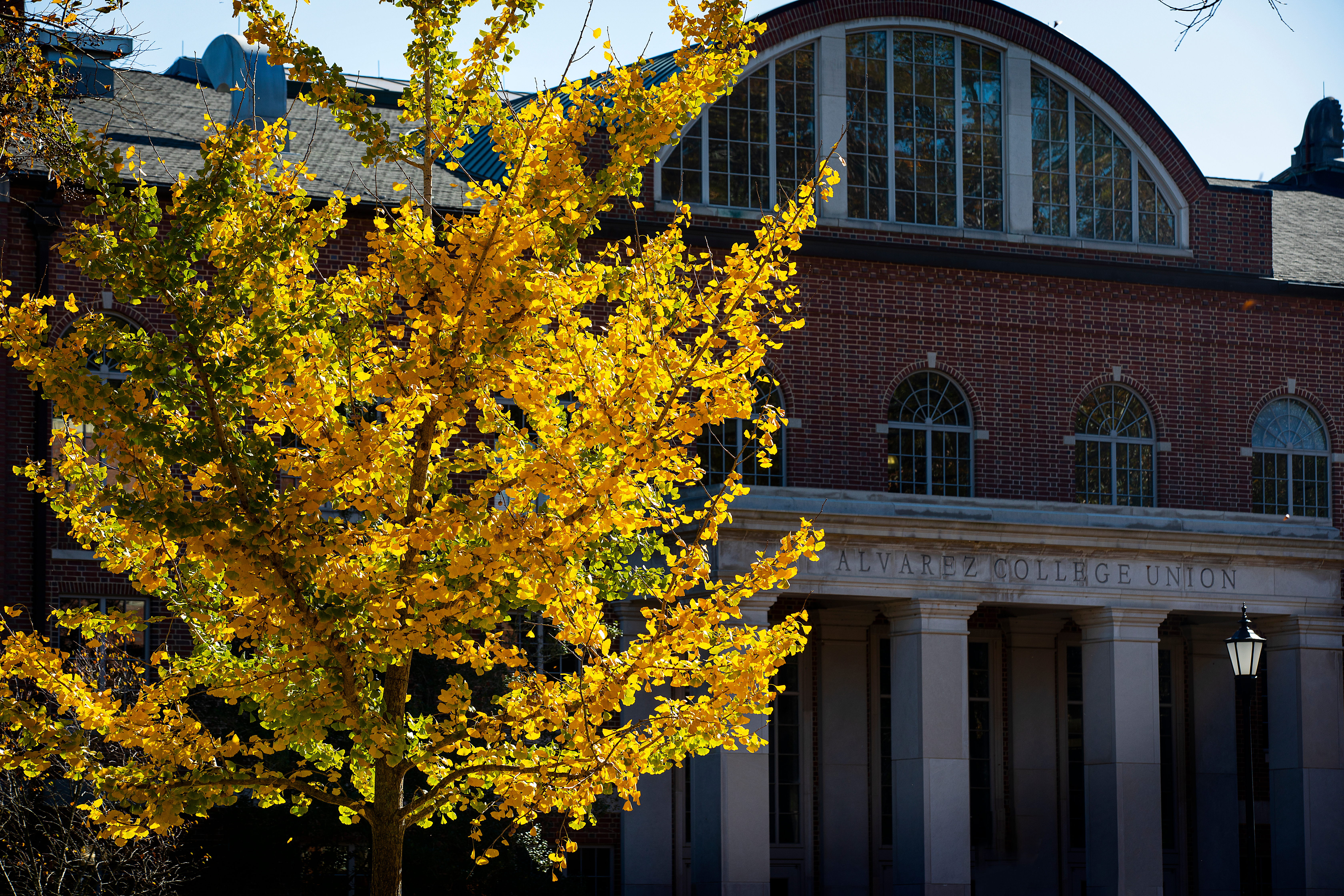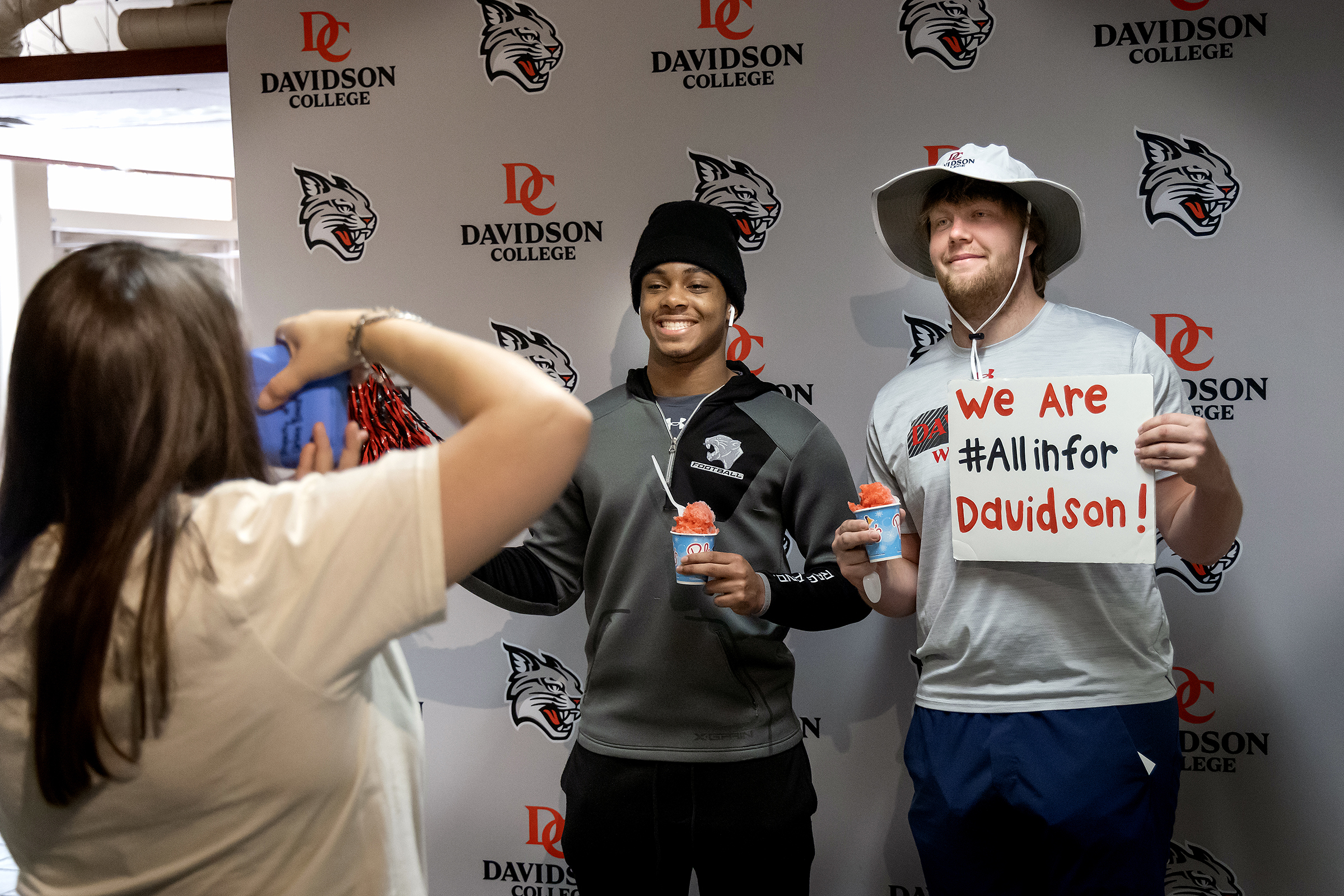edX Award Nomination Recognizes Leadership in Online Education
August 16, 2016
The administrators of the edX online learning portal have nominated Davidson's James G. Martin, Jr. Professor of Chemistry Erland Stevens as one of its most effective instructors.
Stevens is among 11 nominees for the organization's first annual "Prize for Exceptional Contributions in Online Teaching and Learning." The organization will present one or more of the prizes, which carry a $5,000 honorarium, at its Global Forum in Paris in November.
In awarding the "Exceptional Contributions" prize, edX judges will consider an instructor's dedication to learners, learner-focused innovations, technical innovation, engaging teaching methods and participation in discussion forums.
edX is a global consortium of 90 partner institutions offering about 950 online courses. About 840,000 learners thus far have received one of several types of certificates of achievement asserting their participation in an edX course.
Stevens and several Davidson staff members developed the medicinal chemistry class as an online version of a "residential" course in the subject he has been offering in the regular Davidson curriculum since about 2002.
Davidson College joined edX in summer 2012. Since that time, the college has produced four Massive Open Online Courses (MOOCS) for the edX curriculum.
Stevens' online course in "Medicinal Chemistry" was launched in spring 2013 as the college's first contribution to the edX curriculum and has been offered a total of four times. Stevens hopes to continue the course.
The additional offerings were made possible in large part through financial support for the course from the pharmaceutical company Novartis. More than 100 Novartis employees have taken the course, and some have contributed content through video clip interviews about the field and their work in it.
Innovation for Online Learning
The seven-week medicinal chemistry course is not a collection of typical residential classroom lectures. It consists of approximately 50 modules, each starting with a short video lecture followed by readings and assessments. That model supports pedagogical evidence that immediate content and immediate feedback in short, bite-sized pieces are more memorable to the learner.
One student said, "It's not my first MOOC but it is really the best! I like that it's not just lectures to watch and multiple choice questions to answer, but includes lots of activity and readings."
Success also requires an ability to innovate material specifically for online learning. In one of his early offerings, Stevens realized that the design of the course required a means for allowing students to draw chemical structures and submit them for automated grading. With assistance from an outside developer, he created a new problem type called "Molecular Structure," which is now used not only by his online classes, but by multiple institutions.
Other challenges for MOOCS include the relatively high cost of production with little expectation of income, since most MOOCs are free. Additionally, it is generally difficult for students and employers to determine the value of a successfully completed MOOC.
Stevens said monitoring and responding to comments on the discussion pages is the most time-consuming aspect of the course for him. But he has found that feedback from students is extremely valuable in tweaking the curriculum to improve the learning experience for subsequent iterations of the course. He also pays special attention to clarity of speech and text, since many registrants speak English only as a second language, and their ages range from teenagers to senior citizens.
Stevens noted, "It's not something where you just press 'play' and come back in seven weeks, but it does get easier with each run of the course."
The total enrollment for "Medicinal Chemistry" over the four runs is more than 30,000 students. Though that total is not large by MOOC standards, enrollment for "Medicinal Chemistry" is somewhat limited because it carries prerequisites in biology, math and college-level chemistry. In total, approximately five percent of enrolled students completed the course with a passing grade. Although this rate is very low in comparison to residential classes, it is typical for MOOCs.
In addition to the DavidsonX college-level courses, the college and several collaborators are also exploring online learning at the high school level. The Davidson Next project pulls together teams of educators from the affiliated organizations to create online modules that explain the most challenging concepts in AP macroeconomics, calculus and physics. Since July 2015 these materials have been used by 300 AP teachers and 5,000 students in 40 states and 10 countries.



